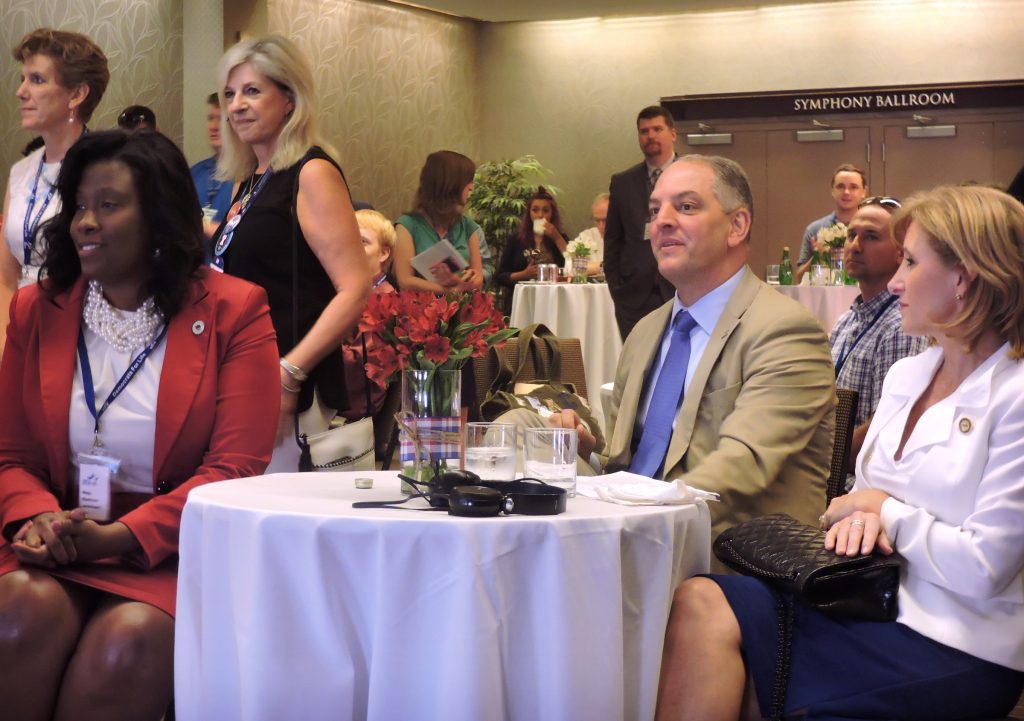Editor's note: Ahead of the 49th anniversary of the Roe v. Wade Supreme Court decision on Jan. 22, Angelus invited several pro-life advocates to weigh in on what efforts to protect the unborn should look like if the Court overturns Roe later this year. Their essays can be found here and in the Jan. 28 print issue of Angelus.
My “No Hidden Magenta” column last month focused on pro-lifers working to move the Republican Party in the direction of reducing abortion demand. I made the case that we should be pushing pro-life legislators to save prenatal lives and support mothers by getting on the side of paid family leave, assistance with child care, increased protections for women at work based on family status, and more.
There is very important work, particularly given that women living in many states do not have these protections and supports. But in some states (like California), much of what I called for is already in place — though pro-lifers need to do a better job making vulnerable women aware.
I want to turn my attention to Democrats and fundamental justice for prenatal children. Pro-lifers should never choose between attacking abortion demand and abortion supply. Limiting access to abortion to uphold the moral and legal status of the unborn as persons is just as important as giving social support to women.
And this, let’s be honest, is a heavy lift with the current national Democratic Party. It is not just “pro-choice” in light of some of the complexities of how laws might work practically. The national party is utterly hostile to the very idea that prenatal children deserve any moral or legal consideration at all.
What does this mean if Roe v. Wade and Planned Parenthood v. Casey are overturned (or at least dramatically changed) such that very significant laws protecting prenatal children from violence can be passed in pro-life states?
Led by the zeitgeist of national Democrats, some states (again, like California) will not only keep the status quo — they are very likely to move to support abortion in even more dramatic ways.
Pro-lifers must be thinking now about a new strategy for prenatal justice in these states.
Has national politics made you skeptical that anything can be done in those places? I get it. I used to be on the board of the national group Democrats for Life — and left once I realized that the national party was hopelessly hostile. But outreach to local Democrats is a different matter. The pro-life Democratic governor of Louisiana, John Bel Edwards, proves all by himself that politicians who identity with the left can both sign heartbeat bills into law and expand Medicaid under Obamacare.
Dare we hope for open-minded Democrats who make this kind of shift? I think so, and for four different reasons.
First, if the decision in Dobbs is favorable to pro-lifers, this will mean a rebirth of debate on abortion that has really never taken place in this country. The Supreme Court took this out of the hands of the people five decades ago, but local debate about how abortion will be handled in each state will bring people to the issue like they have never been.
Second, we often think of abortion as a hyper-polarized fight to the death between life and choice. But most Americans don’t have clear or even consistent views on abortion. As Notre Dame’s Tricia Bruce found in one of the most important studies done on abortion in recent memory, most haven’t even thought the issue through carefully — or at all. We are a people ripe for being educated on the facts and arguments surrounding this issue.
Third, a genuine focus on racial justice and the actual views of Hispanics and Blacks should push white Democrats to a more nuanced and open-minded place. The extremist national Democratic position on abortion is held almost exclusively by elite whites. Economically vulnerable people of color have nuanced views on abortion. Pro-lifers can and should lift up these voices as part of our outreach to Democrats — especially those who say they care about listening to voices of color.
Fourth, the numbers of abortions performed in the U.S. have gone down dramatically from their highs in the 1980s. Millions of babies’ lives have been saved, which is an unequivocal good. Period. But it means there’s another good: fewer post-abortive women.
For pro-lifers who have been around the block, we know that so much of what drives the most virulent voices against prenatal justice is post-abortive pain. The movement’s ongoing outreach to such women is essential. Thank goodness for groups like Rachel’s Vineyard who do the long-term loving work to make sure these women know of God’s healing forgiveness. But when it comes to the practicalities of actually engaging on abortion, hundreds of thousands more women are open to discussion on abortion today when compared with our situation, say, 25 years ago.
All of this is significant reason for optimism — and motivation for the more traditional pro-life organizations to work hand-in-glove with groups like Democrats for Life, Feminists for Life, Rehumanize International, and others who have been doing outreach to those who identify with the political left for many years now.
The harvest is vast, but we need more laborers. Especially, again, if things go our way this summer.

